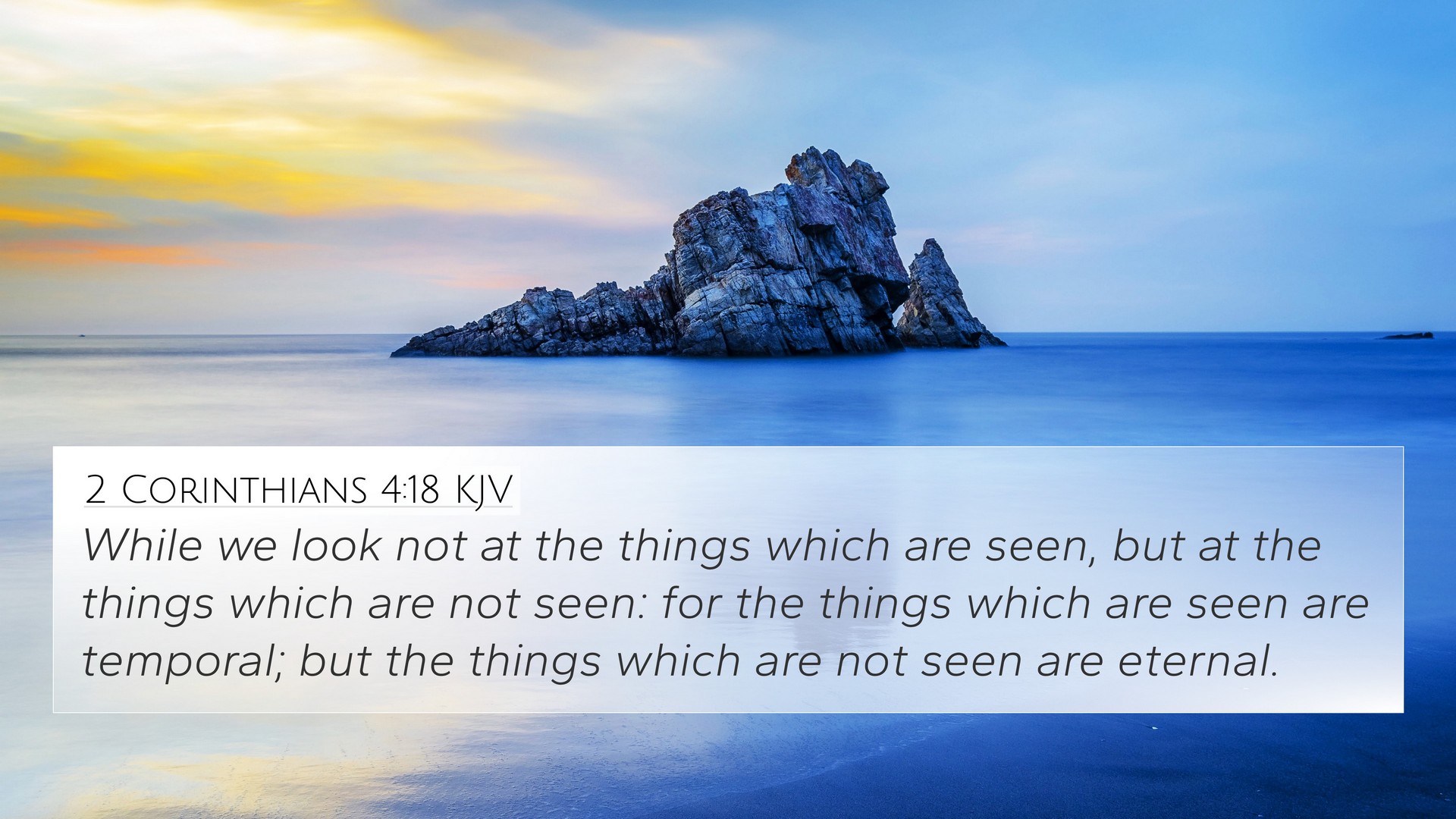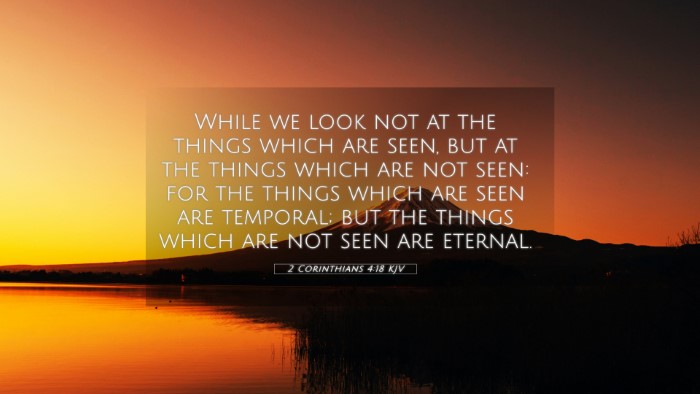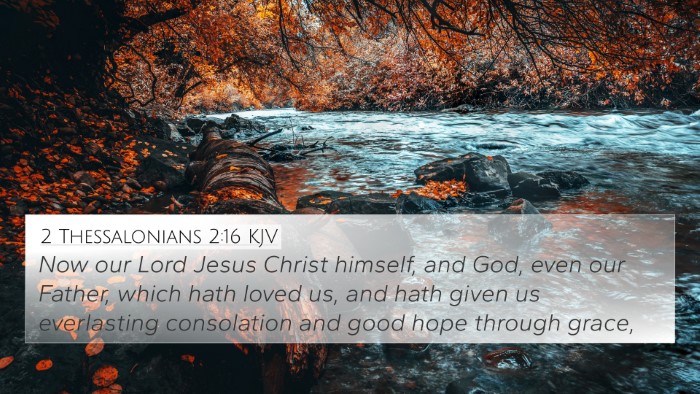Understanding 2 Corinthians 4:18
Verse: 2 Corinthians 4:18 - "While we look not at the things which are seen, but at the things which are not seen: for the things which are seen are temporal; but the things which are not seen are eternal."
This verse encapsulates a profound truth regarding the nature of reality from a Christian perspective. Here, the Apostle Paul emphasizes the transitory nature of earthly experiences and the eternal significance of spiritual realities. Let’s explore this verse's meanings drawing from notable public domain commentaries.
Key Insights from Commentaries
- Matthew Henry: Henry highlights that Paul is directing believers to focus on spiritual matters over physical appearances. He stresses that while the visible world is fleeting, the unseen realm, which includes God and eternal life, should be the primary focus of the Christian faith.
- Albert Barnes: Barnes notes that the afflictions faced in this life are temporary and serve a greater purpose in the context of eternity. He contrasts the temporary joys and sorrows of life with the everlasting joys that await believers, encouraging a shift in focus to the eternal promises of God.
- Adam Clarke: Clarke expands on the notion of "seen" vs. "unseen" by discussing the importance of faith in perceiving spiritual truths. He points out that recognizing the reality of things not seen requires spiritual insight, which is cultivated through prayer and devotion.
Meaning and Application
This verse encourages believers to adopt an eternal perspective in their daily lives. Here are several interpretations and applications derived from the insights of the commentators:
- Focus on the Eternal: Believers should prioritize their relationship with God and the promises found in Scripture over the temporary circumstances and challenges of life.
- Encouragement in Trials: Understanding that afflictions are temporary can provide comfort and hope during difficult times, reinforcing the idea that God is preparing something eternal that outweighs present sufferings.
- Faith and Spiritual Vision: Engaging in practices that strengthen faith, such as prayer and study, enhances one’s perception of spiritual realities, enabling one to appreciate what is beyond the physical.
Cross-References for Deeper Study
To gain a richer understanding of 2 Corinthians 4:18, consider these related Bible verses:
- Romans 8:18: “For I consider that the sufferings of this present time are not worth comparing with the glory that is to be revealed to us.”
- Hebrews 11:1: “Now faith is the substance of things hoped for, the evidence of things not seen.”
- Colossians 3:2: “Set your minds on things that are above, not on things that are on earth.”
- 2 Corinthians 5:1: “For we know that if the tent that is our earthly home is destroyed, we have a building from God, a house not made with hands, eternal in the heavens.”
- Matthew 6:19-21: “Do not lay up for yourselves treasures on earth... but lay up for yourselves treasures in heaven.”
- 1 Peter 1:4: “To an inheritance that is imperishable, undefiled, and unfading, kept in heaven for you.”
- James 1:12: “Blessed is the man who remains steadfast under trial, for when he has stood the test he will receive the crown of life, which God has promised to those who love him.”
Further Exploration Through Cross-Referencing
Utilizing cross-references can facilitate a deeper understanding of Biblical themes and connections. Here are some tools and tips:
- Bible Concordance: Utilize a concordance to find where similar themes of eternity and faith are discussed throughout Scripture.
- Bible Reference Resources: Engage with commentaries and study Bibles that provide insights and references linking various verses and their themes.
- Cross-Reference Bible Study: Implement a systematic approach to study by identifying related verses using a Bible cross-reference guide.
Thematic Connections
2 Corinthians 4:18 relates thematically to various aspects of Christian doctrine, including:
- The Nature of Faith: This verse aligns with teachings about faith that transcend visible circumstances.
- Eternal Life: It echoes the promise of eternal life in Christ, promising believers a hope that outlasts earthly experiences.
Conclusion
2 Corinthians 4:18 invites believers to shift their perspective from the temporal to the eternal, encouraging a faith that is anchored in the unseen promises of God. Embracing this truth can lead to profound spiritual maturity and hope amidst life's transient challenges.













